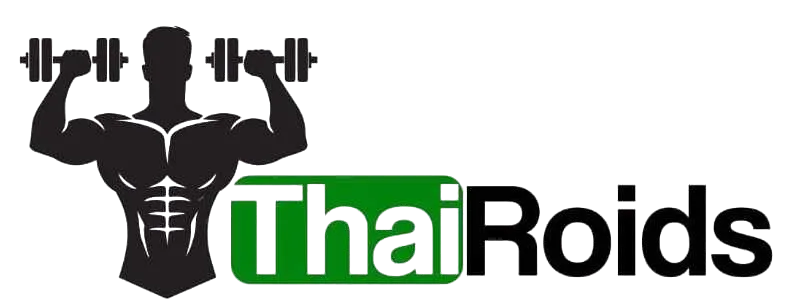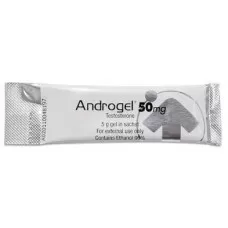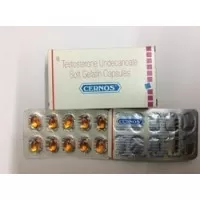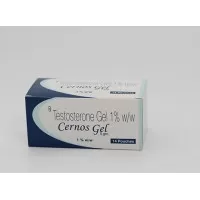Androgel Testosterone Gel 50gm Besins Pack of 1 x 5 gm x 10
- Product Code: Anabol1016
- Reward Points: 52
- Availability: Out Of Stock
- $52.00
- Price in reward points: 520
Tags: Androgel
AndroGel , pack of 10 sachets
Androgel Testosterone Gel 50gm Besins Pack of 1 x 5 gm x 10
Androgel is a transdermal hydroalcoholic testosterone gel that contains a 1% or 1.62% concentration of testosterone by weight. It was originally released in 2.5 gram and 5-gram 1% sachets, equating to a total per-application testosterone dose of 25 mg and 50 mg respectively. The newer 1.62% version provides 40.5 mg of testosterone. The AndroGel® prescribing information states that the product has a transdermal bioavailability of approximately 10%. This means that each 2.5 or 5 gram dose will deliver approximately 2.5 mg or 5 mg of hormone systemically. With this mode of administration, testosterone levels begin to elevate approximately 30 minutes after the gel is applied to the body, and substantial elevations in serum androgen levels are achieved within 4 hours. Testosterone levels will remain elevated for approximately 24 hours after administration, so that that the drug is applied once per day. Regular dosing will provide a steady hormone balance over each 24-hour period.
History:
AndroGel® was developed in the United States by Unimed Pharmaceuticals, a division of Solvay. It was approved by the FDA for sale as a prescription drug in February of 2000. It is indicated for use in adult males with conditions associated with a deficiency or absence of endogenous testosterone. This includes cases of primary hypogonadism, which may be caused by cryptorchidism, bilateral torsion, orchitis, vanishing testis syndrome, orchiectomy, Klinefelter’s syndrome, chemotherapy, or alcohol/heavy metal toxicity. It is also prescribed to treat hypogonadotrophic hypogonadism, including patients with luteinizing hormone or luteinizing hormone-releasing hormone (LHRH) deficiency caused by tumors, injury, or radiation. Primary hypogonadism is usually characterized by low testosterone and high gonadotropin (LH/FSH) levels, while hypogonadotrophic hypogonadism is usually associated with low testosterone and low to normal gonadotropin levels. AndroGel® is said to have a clinical success rate of 87%, perhaps owing to the greater patient comfort and compliance this form of testosterone offers in comparison with hormone injections.
Other transdermal testosterone hydroalcoholic gels have been released in the U.S. and abroad since the introduction of AndroGel®. Testim® by Auxilium Pharmaceuticals is perhaps the most well-known competing brand, sold widely in the U.S. and Europe. This product also comes in the form of a 1% testosterone gel claiming a 10% level of bioavailability. Studies have demonstrated that Testim® delivers as much as 38% more free testosterone for a given dose compared to AndroGel®, however.423 Testim® is noted to use a thicker and stickier gel compared to AndroGel®, which may explain the greater transfer of hormone. In January 2006, the FDA approved the first generic testosterone gel in the U.S., made by Watson Pharmaceuticals. Testosterone gels are one of the most popular methods of testosterone delivery in clinical medicine at the present time, and are likely to be soon found in every market globally that supports an active hormone replacement therapy industry.
How Supplied:
Hydroalcoholic transdermal testosterone gels are available in many human drug markets. Composition and dosage may vary by country and manufacturer, but usually contain 1% testosterone by weight; packaged in volume tubes or single-dose packets containing 2.5 grams or 5 grams of gel. AndroGel® (U.S.) is also produced in a pump dispenser containing 75 grams of gel, which delivers 60 metered applications of 1.25 grams each.
Structural Characteristics:
AndroGel® is a hydroalcoholic gel containing 1% of testosterone (free) by weight. It is designed to provide a continuous transdermal delivery of testosterone for 24 hours following application to the skin. Approximately 10% of the applied dose is absorbed across the skin during each 24-hour period.
Side Effects (Estrogenic):
Testosterone is readily aromatized in the body to estradiol (estrogen). The aromatase (estrogen synthetase) enzyme is responsible for this metabolism of testosterone. Elevated estrogen levels can cause side effects such as increased water retention, body fat gain, and gynecomastia. Testosterone is considered a moderately estrogenic steroid. Exceeding therapeutic doses will increase the likelihood of estrogenic side effects. In such cases, an anti-estrogen such as clomiphene citrate or tamoxifen citrate is commonly applied to prevent estrogenic side effects. One may alternately use an aromatase inhibitor like Arimidex® (anastrozole), which more efficiently controls estrogen by preventing its synthesis. Aromatase inhibitors can be quite expensive in comparison to anti-estrogens, however, and may also have negative effects on blood lipids.
Side Effects (Androgenic):
Testosterone is the primary male androgen, responsible for maintaining secondary male sexual characteristics. Exceeding normal therapeutic doses is likely to produce androgenic side effects including oily skin, acne, and body/facial hair growth. Men with a genetic predisposition for hair loss (androgenetic alopecia) may notice accelerated male pattern balding. Women are warned of the potential virilizing effects of anabolic/androgenic steroids, especially with a strong androgen such as testosterone. These may include deepening of the voice, menstrual irregularities, changes in skin texture, facial hair growth, and clitoral enlargement.
In androgen-responsive target tissues such as the skin, scalp, and prostate, the high relative androgenicity of testosterone is dependant on its reduction to dihydrotestosterone (DHT). The 5-alpha reductase enzyme is responsible for this metabolism of testosterone. The concurrent use of a 5-alpha reductase inhibitor such as finasteride or dutasteride will interfere with site-specific potentiation of testosterone action, lowering the tendency of testosterone drugs to produce androgenic side effects. It is important to remember that anabolic and androgenic effects are both mediated via the cytosolic androgen receptor. Complete separation of testosterone’s anabolic and androgenic properties is not possible, even with total 5-alpha reductase inhibition.
Side Effects (Hepatotoxicity):
Testosterone does not have hepatotoxic effects; liver toxicity is unlikely. One study examined the potential for hepatotoxicity with high doses of testosterone by administering 400 mg of the hormone per day (2,800 mg per week) to a group of male subjects. The steroid was taken orally so that higher peak concentrations would be reached in hepatic tissues compared to intramuscular injections. The hormone was given daily for 20 days, and produced no significant changes in liver enzyme values including serum albumin, bilirubin, alanine-amino-transferase, and alkaline phosphatases.424
Side Effects (Cardiovascular):
Anabolic/androgenic steroids can have deleterious effects on serum cholesterol. This includes a tendency to reduce HDL (good) cholesterol values and increase LDL (bad) cholesterol values, which may shift the HDL to LDL balance in a direction that favors greater risk of arteriosclerosis. The relative impact of an anabolic/androgenic steroid on serum lipids is dependant on the dose, route of administration (oral vs. injectable), type of steroid (aromatizable or non-aromatizable), and level of resistance to hepatic metabolism. Anabolic/androgenic steroids may also adversely effect blood pressure and triglycerides, reduce endothelial relaxation, and support left ventricular hypertrophy, all potentially increasing the risk of cardiovascular disease and myocardial infarction. Therapeutic doses of testosterone used to correct insufficient androgen production in otherwise healthy aging men are unlikely to increase atherogenic risk, and may actually reduce the risk of cardiovascular mortality.425
To help reduce cardiovascular strain it is advised to maintain an active cardiovascular exercise program and minimize the intake of saturated fats, cholesterol, and simple carbohydrates at all times during active AAS administration. Supplementing with fish oils (4 grams per day) and a natural cholesterol/antioxidant formula such as Lipid Stabil or a product with comparable ingredients is also recommended.
Side Effects (Testosterone Suppression):
All anabolic/androgenic steroids when taken in doses sufficient to promote muscle gain are expected to suppress endogenous testosterone production. Testosterone is the primary male androgen, and offers strong negative feedback on endogenous testosterone production.Testosterone-based drugs will, likewise, have a strong effect on the hypothalamic regulation of natural steroid hormones. Without the intervention of testosterone-stimulating substances, testosterone levels should return to normal within 1-4 months of drug secession. Note that prolonged hypogonadotrophic hypogonadism can develop secondary to steroid abuse, necessitating medical intervention.
Administration (General):
Testosterone hydroalcoholic gel is applied daily (preferably in the morning) to intact, clean, dry skin of the shoulders, upper arms, and/or abdomen. Patients should be careful about transferring testosterone to their female partner(s). The prescribing information for AndroGel® suggests that patients wash their hands immediately with soap and water after application, and also recommends covering the application site(s) with clothing after the gel has dried. Studies with AndroGel® have demonstrated that female partners of male patients noticed as much as a doubling of serum testosterone levels following 15 minutes of rigorous skin-on-skin contact. This contact was initiated between 2 and 12 hours after drug administration. Testosterone transfer was completely avoided when the male subjects wore a shirt.
Administration (Men):
To treat androgen insufficiency, the prescribing guidelines for AndroGel® recommend initiating therapy with a 5g daily dose (delivering 5 mg of testosterone systemically). Serum testosterone levels are measured after 14 days, at which point the physician may adjust upwards to 7.5g or 10g if necessary. For physique- or performance-enhancing purposes, higher doses would be necessary to achieve supraphysiological levels of testosterone. The most common dose here is 20 grams per day, which delivers approximately 20 mg of testosterone. This level is sufficient for most users to notice significant gains in muscle size and strength. Lower doses are also regularly used by some athletes, but typically when accompanied by other anabolic/androgenic steroids. Testosterone is ultimately very versatile, and can be combined with many other anabolic/androgenic steroids to tailor the desired effect.




